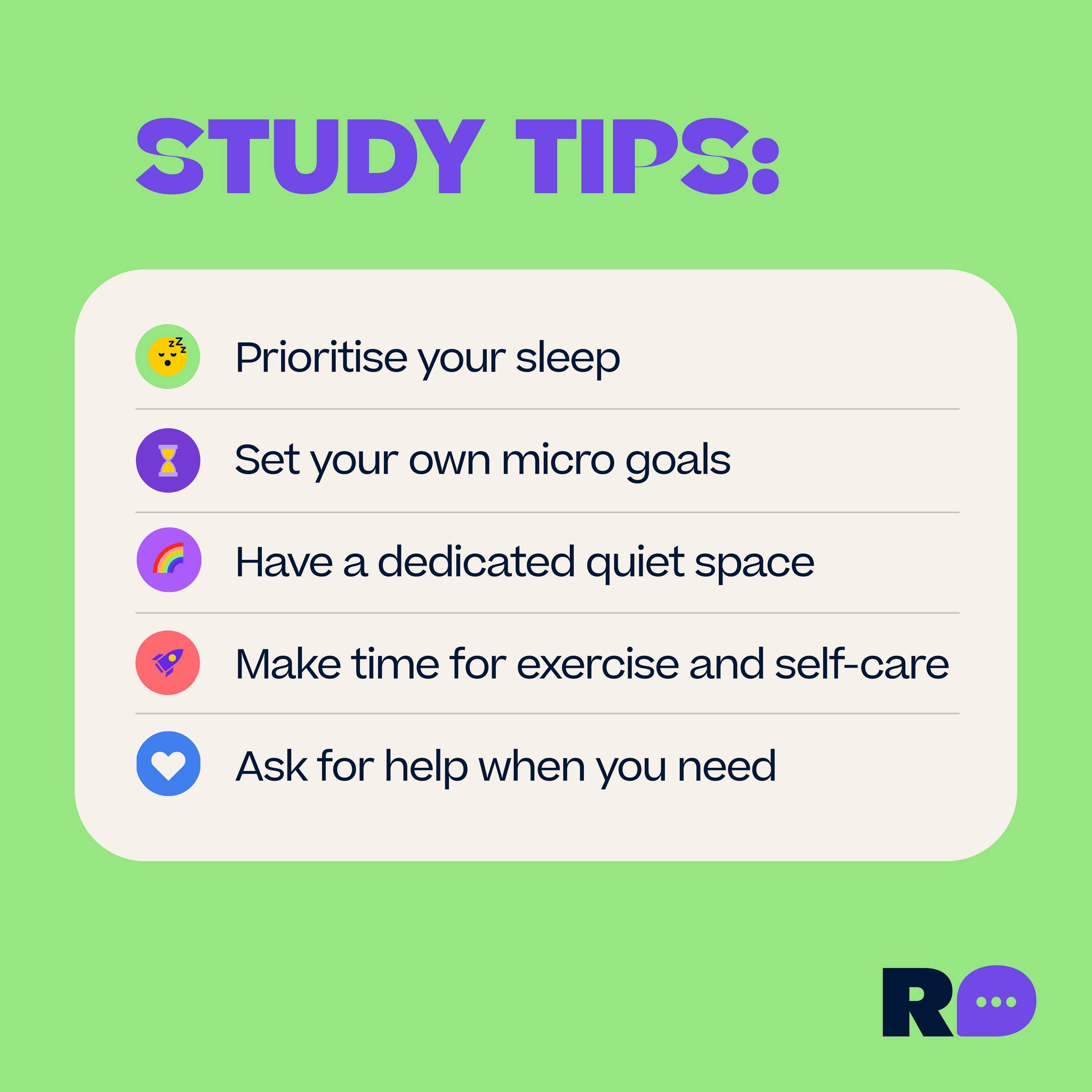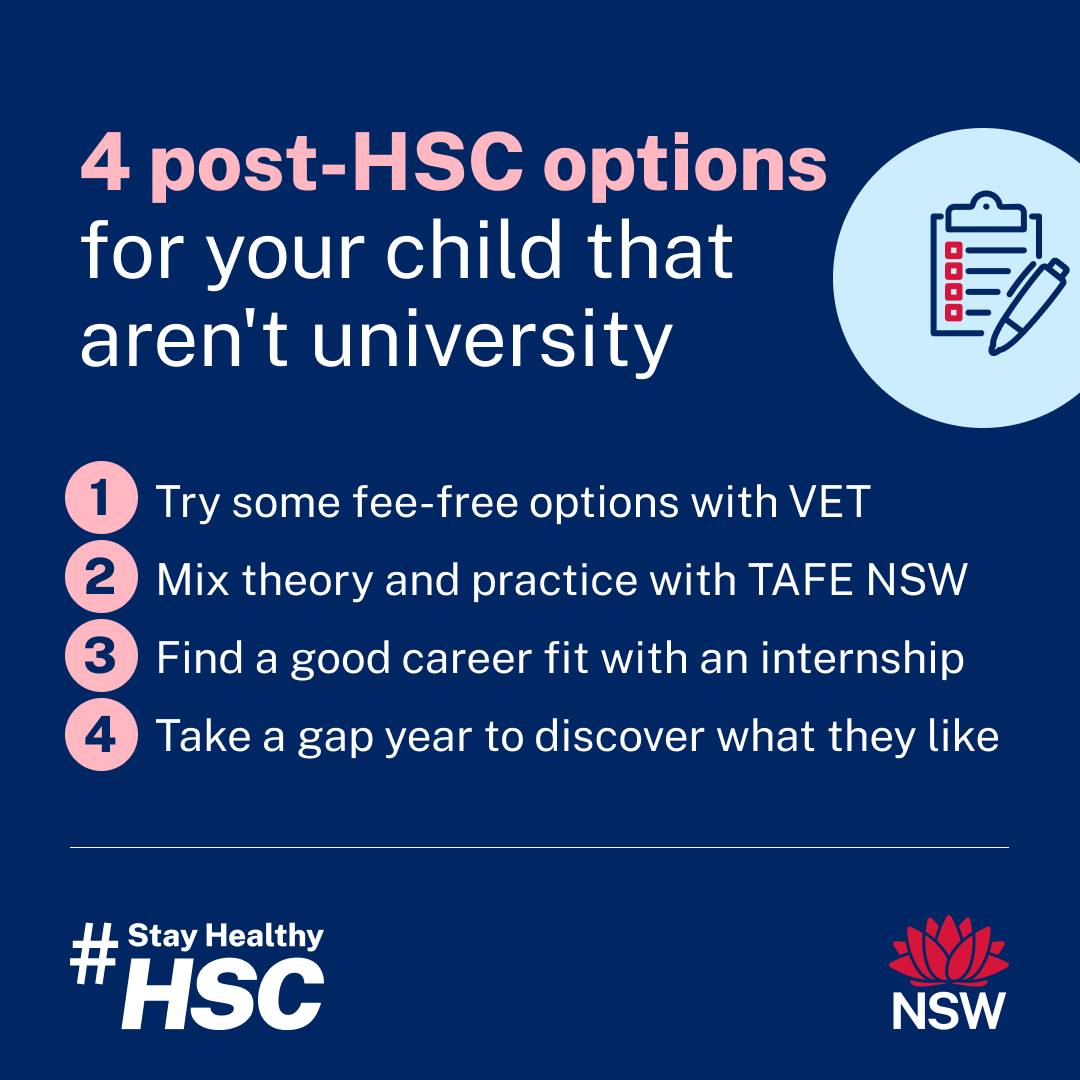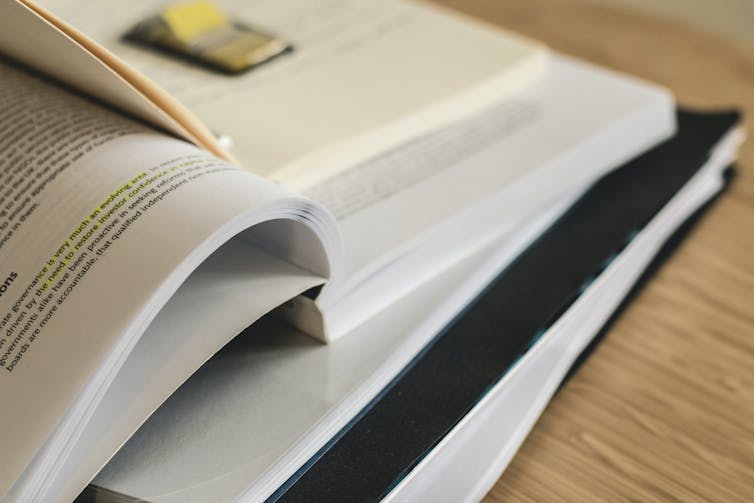HSC 2023: Tips for Students + Parents from ReachOut and educators for this Exam Season
New Research By ReachOut Highlights Links Between Study Stress And Poor Sleep In The Lead Up To Year 12 Exams
- Lifeline – 13 11 14
- Kids Helpline – 1800 55 1800
- 13YARN – 13 92 76 to speak with an Aboriginal & Torres Strait Islander crisis supporter
- If you are in immediate danger dial 000
Links To ReachOut Support Content

8 Student-Backed Study Tips To Help You Tackle The HSC
By University of Sydney: Last updated 6 July 2023
Our students have been through their fair share of exams and learned a lot of great study tactics along the way. Here they share their top study tips to survive and thrive during exam time.
1. Start your day right
Take care of your wellbeing first thing in the morning so you can dive into your day with a clear mind.
“If you win the morning, you can win the day,” says Juris Doctor student Vee Koloamatangi-Lamipeti.
An active start is a great way to set yourself up for a productive day. Begin your morning with exercise or a gentle walk, squeeze in 10 minutes of meditation and enjoy a healthy breakfast before you settle into study.
2. Schedule your study
“Setting up a schedule will help you organise your time so much better,” says Master of Teaching student Wesley Lai.
Setting a goal or a theme for each study block will help you to stay focused, while devoting time across a variety of subjects will ensure you've covered off as much as possible. Remember to keep your schedule realistic and avoid over-committing your time.
Adds Wesley, “Make sure to schedule in some free time for yourself as well!”
3. Keep it consistent
“Make studying a habit,” recommends Alvin Chung, who is currently undertaking a Bachelor of Arts and Bachelor of Laws.
With enough time and commitment, sitting down to study will start to feel like second nature rather than a chore.
“Do it every day and you’ll be less likely to procrastinate because it’s part of your life’s daily motions,” says Alvin.
4. Maintain motivation
Revising an entire year of learning can seem like an insurmountable task, which is why it’s so important to break down your priorities and set easy-to-achieve goals.
“I like to make a realistic to-do list where I break down big tasks into smaller chunks,” says Bachelor of Arts and Advanced Studies student Dannii Hudec.
“It’s also really important to reward yourself after you complete each task to keep yourself motivated.”
Treat yourself after each study block with something to look forward to, such as a cup of tea, a walk in the park with a friend or an episode of your latest Netflix obsession.
5. Minimise distractions
With so many distractions at our fingertips, it can be hard to focus on the task at hand. If you find yourself easily distracted, an “out of sight, out of mind” approach might do the trick.
“What helps me is to block social media on my laptop. I put my phone outside of my room when I study, or I give it to my sister or a friend to hide,” says Bachelor of Commerce and Bachelor of Laws student Caitlin Douglas.
While parting ways with your phone for a few hours may seem horrifying, it can be an incredibly effective way to stay on task.
“It really helps me to smash out the work and get my tasks done,” affirms Caitlin.
6. Beware of burnout
Think of the HSC period as a marathon rather than a sprint. It might be tempting to cram every single day but pacing out your study time will help to preserve your endurance.
“Don’t do the work for tomorrow if you finish today’s work early,” suggests Daniel Kim, who is currently undertaking a Bachelor of Commerce and Advanced Studies.
“Enjoy the rest of your day and save the energy for tomorrow,” he recommends.
Savouring your downtime will help you to avoid burning out before hitting the finish line.
7. Get a good night's sleep
Sleep is one of your greatest allies during exam season.
“I’ve found that a good night’s sleep always helps with concentration and memory consolidation,” says Bachelor of Science (Medical Science) student Yasodara Puhule-Gamayalage.
We all know we need to be getting around 8 hours of sleep a night to perform at our best, but did you know the quality of sleep also matters? You can help improve the quality of your sleep with some simple tweaks to your bedtime routine.
“Avoid caffeine in the 6 hours leading up to sleep, turn off screens an hour before going to bed, and go to bed at the same time every night,” suggests Yasodara.
8. Be kind to yourself
With exam dates looming and stress levels rising, chances are high that you might have a bad day (or a few!) during the HSC period.
According to Bachelor of Arts and Advanced Studies student Amy Cooper, the best way to handle those bad days is to show yourself some kindness.
“I know that if I’m in a bad state of mind or having a bad day, I’m not going to be able to produce work that I’m proud of,” she says.
For Amy, the remedy for a bad day is to take some time to rest and reset.
“It’s much more productive in the long run for me to go away, do some things I love, and come back with a fresh mind.”
Immerse yourself in a mentally nourishing activity such as going for a bushwalk, cooking your favourite meal, or getting stuck into a craft activity.
If you feel completely overwhelmed, know you're not alone. Reach out to a friend, family member or teacher for a chat when you need support.
There are also HSC Help resources available through the NSW Department of Education at: education.nsw.gov.au/student-wellbeing/stay-healthy-hsc

Avoid cramming and don’t just highlight bits of text: how to help your memory when preparing for exams

With school and university exams looming, students will be thinking about how they can maximise their learning.
Memory is a key part of how we learn.
If students understand how memory works, they can prioritise effective study habits. This will help for exams as well as their learning in the longer term.
What is memory?
According to cognitive psychology (the study of our mental processes), there are three distinct types of memory. Each plays a different role in effective study:
sensory memory temporarily holds vast amounts of new information from our senses. This includes everything we have just seen, heard, touched or tasted. If we pay attention to that information, it moves into working memory for processing. If we don’t pay attention, it is discarded.
working memory is our brain’s control centre. All conscious cognitive activity, including remembering, calculating, planning, problem-solving, decision-making and critical thinking happens in our working memory. However, if we have too much on our minds, working memory can easily become overloaded. This makes it important to offload knowledge and skills to long-term memory.
long-term memory is our brain’s library. When new knowledge or skills are well practised, they are “encoded” from working memory and into long-term memory. Here they are stored in vast networks called schemas. To use those knowledge and skills again, we retrieve those schemas back into working memory. The more we encode and retrieve knowledge and skills, the stronger those memory pathways become. Well-learned schemas can be retrieved automatically, which creates space in working memory for new thinking and learning.
How to help your memory when preparing for exams
Not everyone likes exams and educators often debate their advantages and disadvantages.
But if you are a student who is studying for exams right now, here are some tips to help you use your time well:
create the conditions for attention: put your phone away and remove distractions. Remember, your attention is needed to bring information into working memory and keep it there. Loss of attention, or mind wandering, can result in poorer learning. Harvard professor of psychology Dan Schachter calls absent-mindedness one of the “seven sins of memory”.
consider your subject area: different disciplines ask different kinds of questions and you should study with these in mind. In a Year 12 English exam, for example, you might be asked to write a response about your interpretation of a particular text. So don’t just re-read the text; effective study involves drawing out themes and insights, practising your arguments and seeking feedback.
minimise “shallow” study: most students report re-reading and highlighting text when studying. But these are less effective than other study techniques. Shallow study or encoding focuses more on surface features and less on meaning. This encourages rote recall over genuine understanding and leads to poorer learning. In one study, re-reading a textbook twice in a row offered no advantage over reading it for the first time.

maximise “deep” study: this involves actively using the information you are studying. Depending on your discipline, this might include answering practice questions, constructing your own questions, summarising, identifying themes, evaluating existing arguments, making decisions, or explaining concepts to others. This deep encoding results in stronger schematic networks, which are more easily reactivated when you need them.
move beyond worked examples: worked examples are step-by-step illustrations of the processes to solve a problem. They can be powerful starting points because they show you how to use a particular strategy. They also help to reduce working memory load. But as you become more expert, it is more effective to draw those strategies from long-term memory yourself.
take breaks: research with Australian university students shows even a five-minute rest break can support attention – the gateway to learning. Research using brain scans also shows rest can help you consolidate memories.
don’t cram: the so-called “spacing effect” shows memory and conceptual understanding both benefit from distributed rather than massed learning. This means six half-hour sessions are better for learning than one three hour block.

mix up your study: this could mean varying questions and activities, so your brain is forced to compare, contrast, refine, and draw distinctions between concepts and approaches. This is known as “interleaving”, and has been shown to boost learning in subjects such as maths, music and medicine.
don’t skip sleep: sleep is crucial for the consolidation of memory or solidifying new connections or insights you have made.
give yourself enough time: unfortunately, there are no shortcuts here! Each time you practise drawing specific knowledge and skills from long-term memory into working memory, you are etching a memory super-highway. The more you do this, the better and quicker you become – which is what you will need come exam time.

Penny Van Bergen, Head of School of Education and Professor of Educational Psychology, University of Wollongong
This article is republished from The Conversation under a Creative Commons license. Read the original article.
How to manage exam season: don’t forget to take regular breaks and breathe

Around Australia, Year 12 students are heading into the final stretch of study before exams start in early term 4. This is typically seen as a very intense period of preparation. But, as our research shows, it is also important to rest during this time if you want to maximise your performance.
Intuitively, we understand breaks are important. We can take rest breaks across different times in our lives. They include sabbaticals, gap years and holidays, weekends and nightly sleep.
But rest breaks can be beneficial on even shorter time frames, during study sessions and even during exams themselves.
Firstly, try and get some sleep

Students may be tempted to stay up late, trying to cram for an exam the following day. The big risk here is that lack of sleep can do more harm than good.
Sleep plays an important role in a range of brain functions, including maintaining attention and consolidating memories. So getting a poor night of sleep before an exam may mean the topics you’ve tried to cram aren’t well-formed in your long-term memory. Even if they were, the brain fog from lack of sleep means you may not recall what you’ve learned under the pressure of exam conditions.
In the lead-up to your exams, here are some specific things to consider:
try and keep all screens out of the bedroom: people often struggle with sleep because they’re tempted to check their phone at bedtime.
screens also emit blue light: this can interfere with your body’s circadian rhythms. Blue light during the day enhances attention, but too much of it in the evening can interfere with sleep quality.
so don’t use a smartphone as an alarm: get an old-fashioned alarm clock instead.
For more information about sleep, the Sleep Health Foundation has specific advice for high school students.
You need study breaks
When we study, we’re using our working memory (processing of small amounts of information, needed for things like comprehension and problem-solving). This builds our understanding of a topic. We then want to encode that understanding into long-term memory for use later, such as in an exam.
Without breaks, over time, these working memory resources become depleted and we notice it’s harder and harder to concentrate.
In our 2023 study, we found that a short (five minute) break following a period of difficult cognitive work (solving mental arithmetic problems) made a substantial difference to how much students learned during a lesson on a mental mathematics strategy.
Students who took a “do nothing” break performed 40% better than the no-break students on a subsequent test. Students who watched a first-person perspective video of a walk in an Australian rainforest for five minutes also performed better (57%) than the no-break students.
This suggests building in short rest breaks during study can help you learn.
How do you build in breaks?
Here are some specific strategies to help you get the rests you need:
when you plan your study schedule build in short breaks: drawing on the Pomodoro time management technique, we recommend using a timer (but not one on a smartphone). Aim to take a five-minute break after 25 minutes of study.
again, don’t use a smartphone: many of the features of a phone are purpose-built to capture and keep your attention, which you need for studying! These short breaks could take many forms: getting a cup of tea, playing with a pet, getting some sun outside, doing some star jumps to wake yourself up, or some breathing exercises (I explain these below).
longer breaks are important too: following the Pomodoro technique, aim to take a longer break (15-30 minutes) after four rounds of 25 minutes study/five minutes rest. Use at least some of these longer breaks for your physical and mental health away from your desk (and screens) – such as exercise, meditation, or a 20-30-minute nap.

Also take breaks during exams
It’s reasonable to think we should be using every minute of an exam for answering questions. But just as rest breaks during study can help restore attention, breaks during exams themselves may also be helpful.
Breaks are a common part of exams for students with disability provisions, but with some planning, all students might benefit from breaks.
A common strategy you can use to prepare for Year 12 exams is to complete past exam papers. When you do this, use the same “short break” study strategy described above. When it seems like a good break point (for example, in between finishing one section of the paper and starting another), stop for a few minutes and practise taking a short break.
Under exam conditions, you’re more limited in what type of break you can take. But simple controlled breathing routines such as “box breathing” or the “4-7-8 method” can help you refocus.
These routines can also activate the “relaxation response” – the opposite of the “flight-or-flight” response we experience under stressful conditions (including exams).
An even shorter form of breathwork to reduce stress in the moment is the physiological sigh – two inhales, followed by an exhale.
When it comes to the actual exam, you’ll be using the reading time to plan how you’ll complete the various sections. Take this time to also think carefully about when you’ll take some short breaks. When the exam begins, you might even write “take a two-minute break now” at suitable points in the exam booklet.
There is so much to think about in the lead-up to and during exams. If you schedule in and practise taking breaks, you will get better at doing it and give yourself and your brain a really important rest. ![]()
Paul Ginns, Associate Professor in Educational Psychology, University of Sydney
This article is republished from The Conversation under a Creative Commons license. Read the original article.